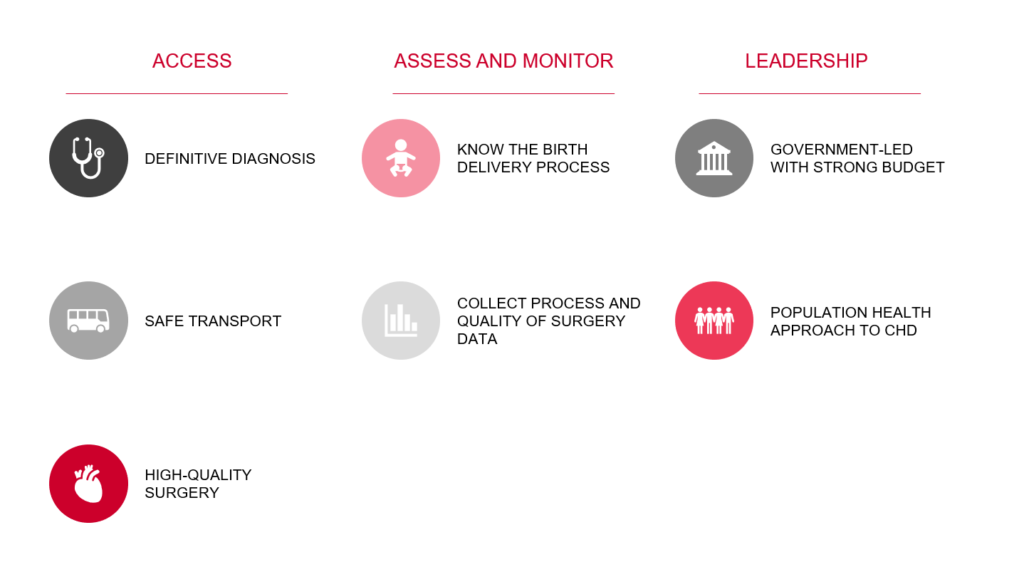
Photo by Scott Streble
Published on June 18, 2020
Children’s HeartLink, together with our partners from the Newborn Foundation and the Government of the Indian state of Kerala, recently published recommendations for implementation of newborn screening for critical congenital heart disease in low- and middle-income countries.
Critical congenital heart disease refers to serious and life-threatening heart defects that need to be repaired in the first days or first year of life. If it is detected early, critical congenital heart disease is often treatable. Newborn screening for critical congenital heart defects includes pulse oximetry screening to measure the amount of oxygen in the blood and a physical exam. Such screening can identify newborns with these conditions before signs or symptoms are evident and before the newborns are discharged from the hospital.
“In the United States, a physical examination is not a mandatory part of the screening process because, as a general rule, most births happen in a delivery facility and, prior to discharge, as part of routine newborn care, all newborns are seen by a pediatrician trained to listen for heart problems. Low- and middle-income countries, on the other hand, rarely offer this service,” write the authors.
“Assessing health system readiness is imperative prior to the implementation of critical congenital heart disease screening in low- and middle-income countries. Assuring that all downstream capacity needed for diagnosis and treatment of critical congenital heart disease is in place is what will save newborn lives,” says Children’s HeartLink Vice President of Global Strategy and Advocacy Bistra Zheleva, one of the authors.

The specific recommendations include: (1) assure access to a definitive diagnosis and high-quality surgery; (2) assess birth delivery center processes and staff training needs; (3) collect data on implementation and quality surgical outcomes; (4) ensure government-led implementation with appropriate budgets; (5) plan critical congenital heart disease screening as part of the overall patient care continuum using a population health approach.
In partnership with the Government of Kerala since 2016, Children’s HeartLink is working to improve access to care for children with congenital heart disease. This partnership has improved the system for prenatal, newborn and childhood screening of congenital heart disease through training and awareness-building among primary care providers. Part of the physical exam in Kerala now must be conducted by delivery center nurses who have additional and specialized training. As a result of this effort, the infant mortality rate in Kerala has been reduced from 10 deaths to 7 deaths per 1,000 live births. The national infant mortality rate in India is 32 deaths per 1,000 live births.
